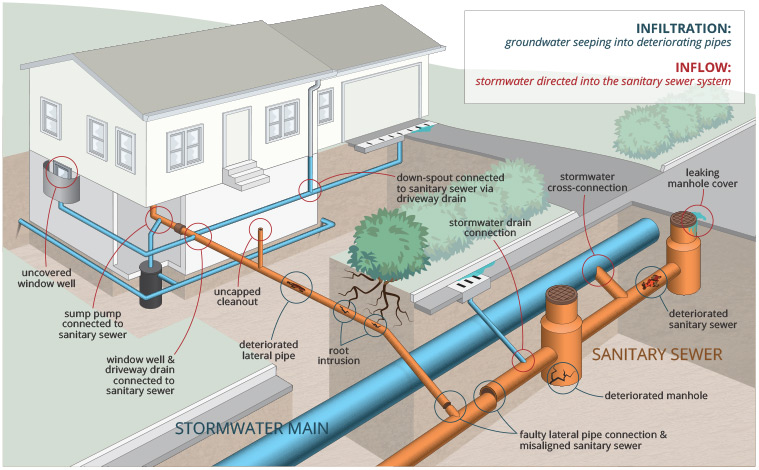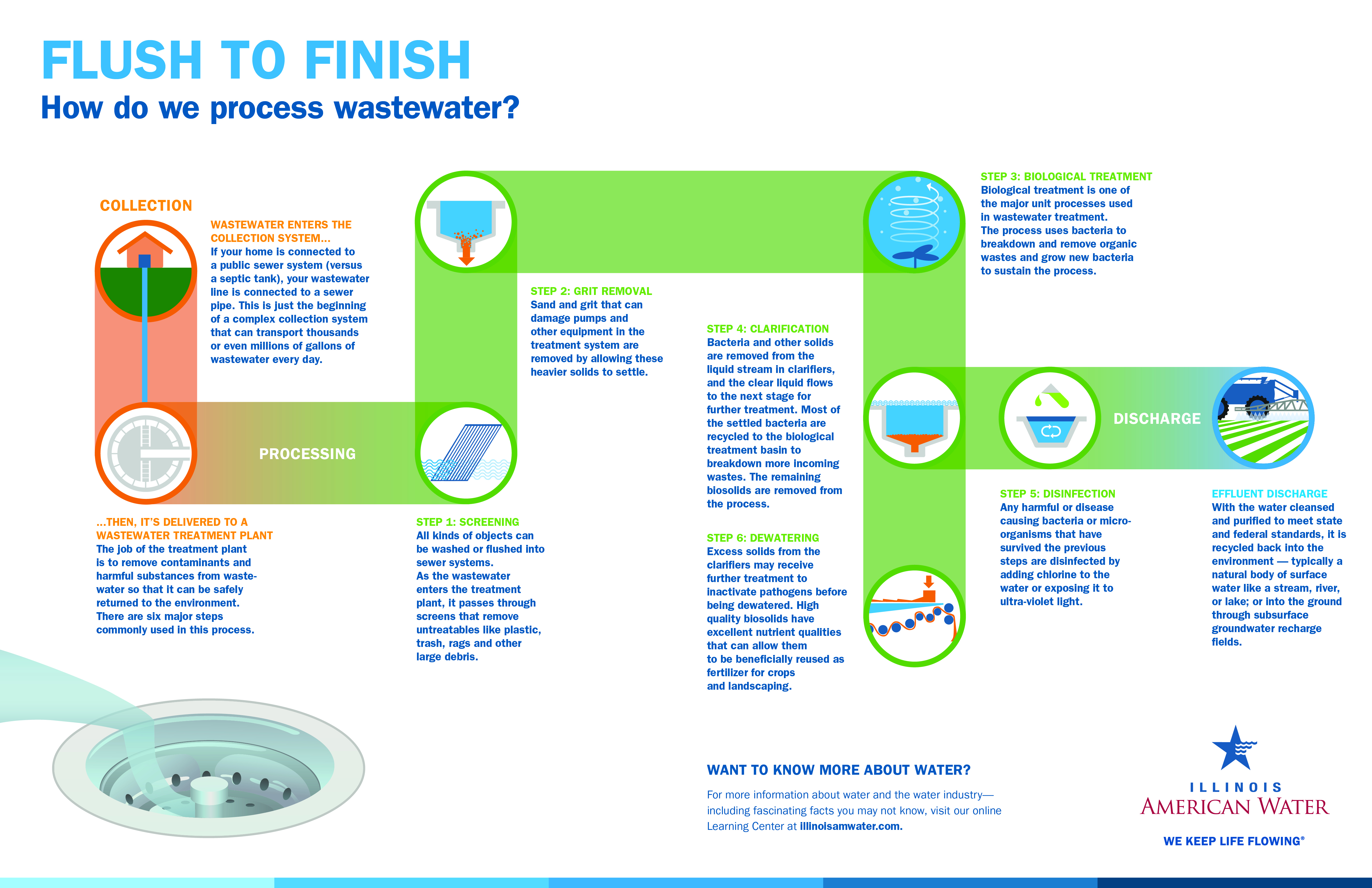WASTEWATER SERVICE
Safe, effective and reliable wastewater service is essential. We provide communities with scientifically proven and environmentally sound solutions for collection, treatment and release.
Below are a few examples of technology we implement in the field to create efficiencies of scale, scope and cost:
- Membrane Bioreactors: Combining ultrafiltration and biological treatment, membrane bioreactors are a powerful and efficient solution for the treatment of wastewater.
- Biological Nutrient Removal: The removal of nutrients such as nitrogen and/or phosphorous through an activated sludge system.
- UV Disinfection: Replacing chlorine with more environmentally friendly UV technologies for a safer, more efficient way to disinfect wastewater.
Combined Sewer and Separate Sewer Systems
In a Separate Sewer System, sanitary waste and stormwater are each transported through a separate and distinct piping system. Many municipalities are served by separated sewer collection systems. Combined Sewer Systems are also very common, where sanitary waste and stormwater combine and flow through one collection system. During large rain events, excess stormwater in a combined system can cause Combined Sewer Overflows, or CSOs. CSOs occur when too much wastewater enters the collection system and the excess, untreated water discharges into local tributaries. CSOs can adversely impact water quality in rivers and streams.

Learn more about stormwater management and CSO systems here.
Please review these useful documents to understand your wastewater system and how to prevent blockages and unauthorized connections.
Sewer Guide
Downspout Disconnection Instructions
Proper Sump Pump Installation
Preventing Sewer Blockages
Improper Connections
Improper connections to sump pumps and roof drains discharge storm water into sanitary sewers, creating a potential for backups, overflows and related health risks. The Illinois Environmental Protection Agency and the Illinois Commerce Commission require customers to have authorized sewer connections. Periodic inspections by Illinois American Water or a qualified contractor will be scheduled to ensure you are in compliance. See below examples of possible sources for concern.

Wastewater Treatment Process
|
Resources for Restaurants
National Restaurant Association: Fats, Oils and Grease Control: Best practices for effective grease control management
FOG Poster for Restaurants: Click Here

